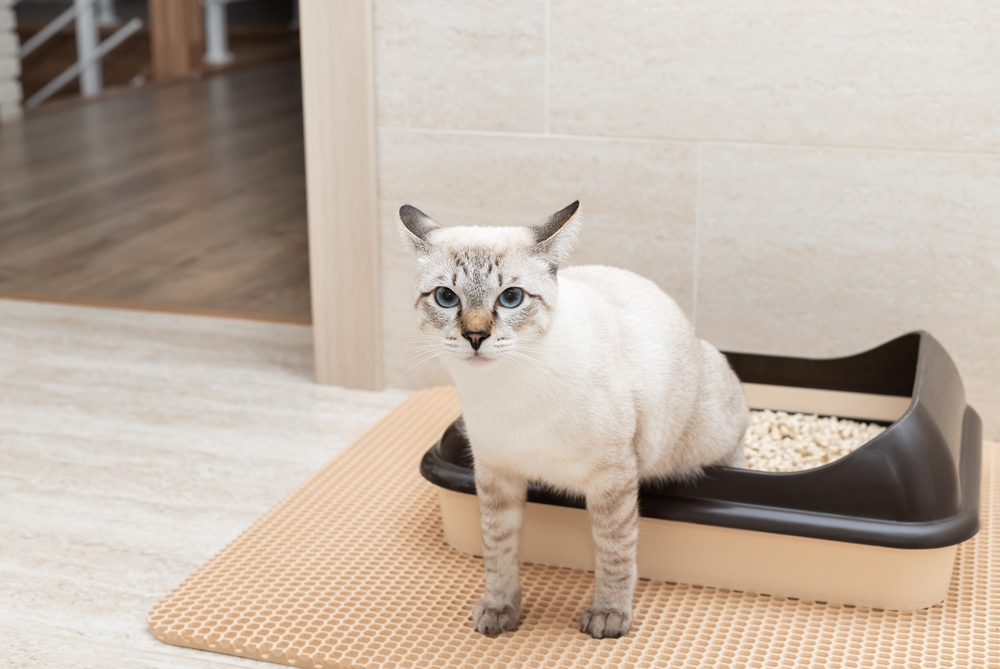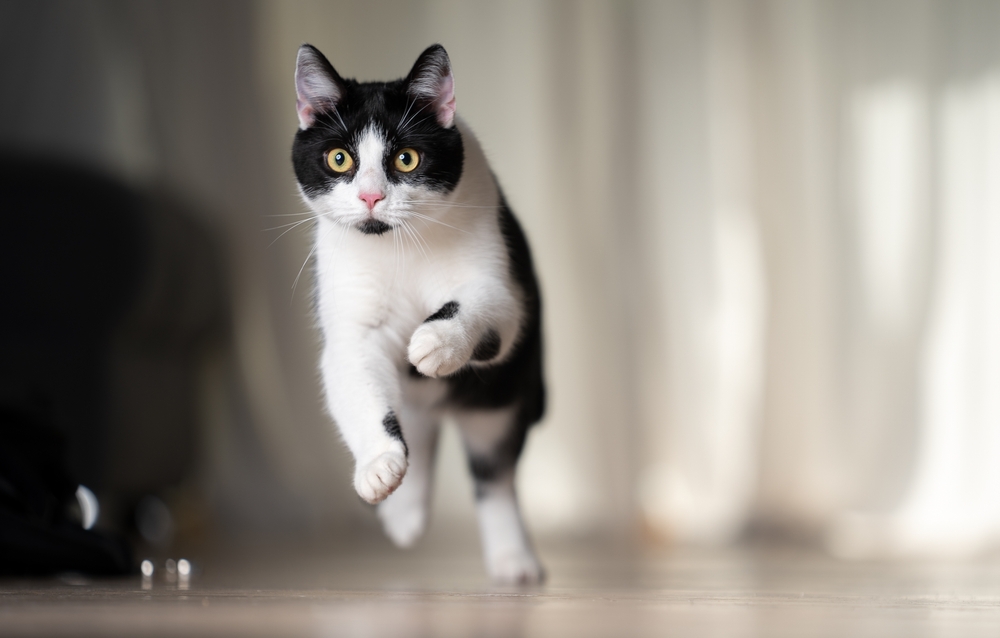Indoor cats lead a cushy life, and you can make their life absolutely purrfect by creating a cat-friendly environment that keeps them engaged, and encourages them to express their natural instincts. Learn to keep your indoor cat content by following our Oliver Animal Hospital team’s do’s and don’ts.
DO encourage your cat’s natural prey drive and hunting skills
Although cats spend most of their time napping, when they are awake, they feel like exercising their behavioral instincts such as stalking and covertly surveying their territory. Remember, your cat is innately curious, and needs stimulating activities to keep their boredom at bay.
- Encourage your cat to hunt their food — Satisfy your pet’s natural hunting instincts by hiding their food or treats in a food puzzle, or by spreading tasty morsels around the house, and allowing them to track the scent. Encouraging your cat to hunt their food provides them with much-needed mental stimulation and physical activity
- Make time to play with your cat — Schedule time every day to engage in play with your cat, and to satisfy their instinct to hunt prey, offer them various interactive toys such as a feather wand or a battery-powered mouse. Rotate your cat’s toys regularly to keep them interested and engaged.
DON’T let your cat ingest common toxins
You likely keep your cat indoors to protect them from outdoor hazards such as roadways and wildlife. Although much safer than outdoors, your home holds hazards that endanger your indoor cat. A safe cat is a happy cat, and you are responsible for protecting them from life-threatening health emergencies by recognizing—and preventing them from ingesting—common household toxins such as:
- Medications — Many prescription and over-the-counter medications are toxic to cats. Keep your medications securely stored, and never give your cat human medications before consulting your veterinarian.
- Foods — Some human foods are poisonous to cats. Do not feed your cat alcohol, chocolate, grapes, raisins, onions, garlic, or chives.
- Plants and flowers — Curious cats like to nibble plants, but some houseplants and flowers are toxic. Lilies, cyclamen, daffodils, tulips, and hyacinths are just a few potentially poisonous plants. Keep toxic plants out of your cat’s reach, and add cat-friendly plants, such as catnip, to your home.
- Household chemicals — Your cat may find some common household chemicals enticing—but they can be deadly. To prevent your cat from being tempted to ingest poisons, lock away household chemicals such as antifreeze, bleach, detergents, fertilizers, and insecticides.
DO provide places for your cat to climb and scratch
Cats are natural climbers, and vertical furnishings—cat trees and scratching posts—satisfy their instincts to climb, stretch, scratch, and observe their surroundings from a high vantage point as they would in the wild. Place scratching posts in areas your cat frequents, keeping in mind they enjoy various scratching surfaces such as corrugated cardboard, sisal, or wood.
DON’T skip your cat’s regular wellness exams
Cats are pros at hiding illness signs, and regular wellness exams can ensure your veterinarian detects and treats their health issues before they become advanced. In addition, at your cat’s annual exam, your veterinarian will administer their necessary, lifesaving vaccinations, because indoor cats can be exposed to dangerous diseases if an infected mosquito slips through an open door and bites them, or you track in contaminated grass clippings. Healthy adult cats should have a physical exam at least once per year.
DO choose your cat’s litter box placement carefully

Litter trays are essential for indoor cats and—as in real estate—location matters. To ensure your cat’s comfort, consider these litter box placement tips:
- Privacy — Your cat will be grateful when you place their litter box in a low-traffic, easy-to-reach corner that offers privacy—away from their food and water bowls.
- Quiet — Cats prefer to relieve themselves in a quiet place, so keep their litter box away from appliances, such washing machines, refrigerators, or furnaces, whose loud, often shrill, noises may frighten them.
- Clean — Ensure your cat’s litter box stays inoffensive by cleaning it often. If you allow your cat’s litter box to become smelly and full, your furry feline friend may decide to do their business in a more pleasant home area, such as on your new silk duvet. In the wild, cats cover their excrement so other cats and predators cannot detect them, and your domestic kitty may avoid a smelly litter box they instinctively sense could put them in harm’s way. So, keep the litter box clean to satisfy another instinctive behavior your indoor cat has inherited from their wild ancestors.
- Consistency — Cats are creatures of habit. Your cat may become anxious and confused if you suddenly change a routine such as moving their litter box. If you must move your cat’s litter box, do so gradually over several days.
Indoor cats enjoy a cushy lifestyle, but to ensure they remain content, provide them with the furnishings and mental stimulation activities they need to act on their instinctive behaviors. Our Oliver Animal Hospital team members are cat lovers and feline health experts. If you have questions about your indoor cat’s mental or physical health, or they are due for their annual wellness exam, contact our team to schedule an appointment.







Leave A Comment